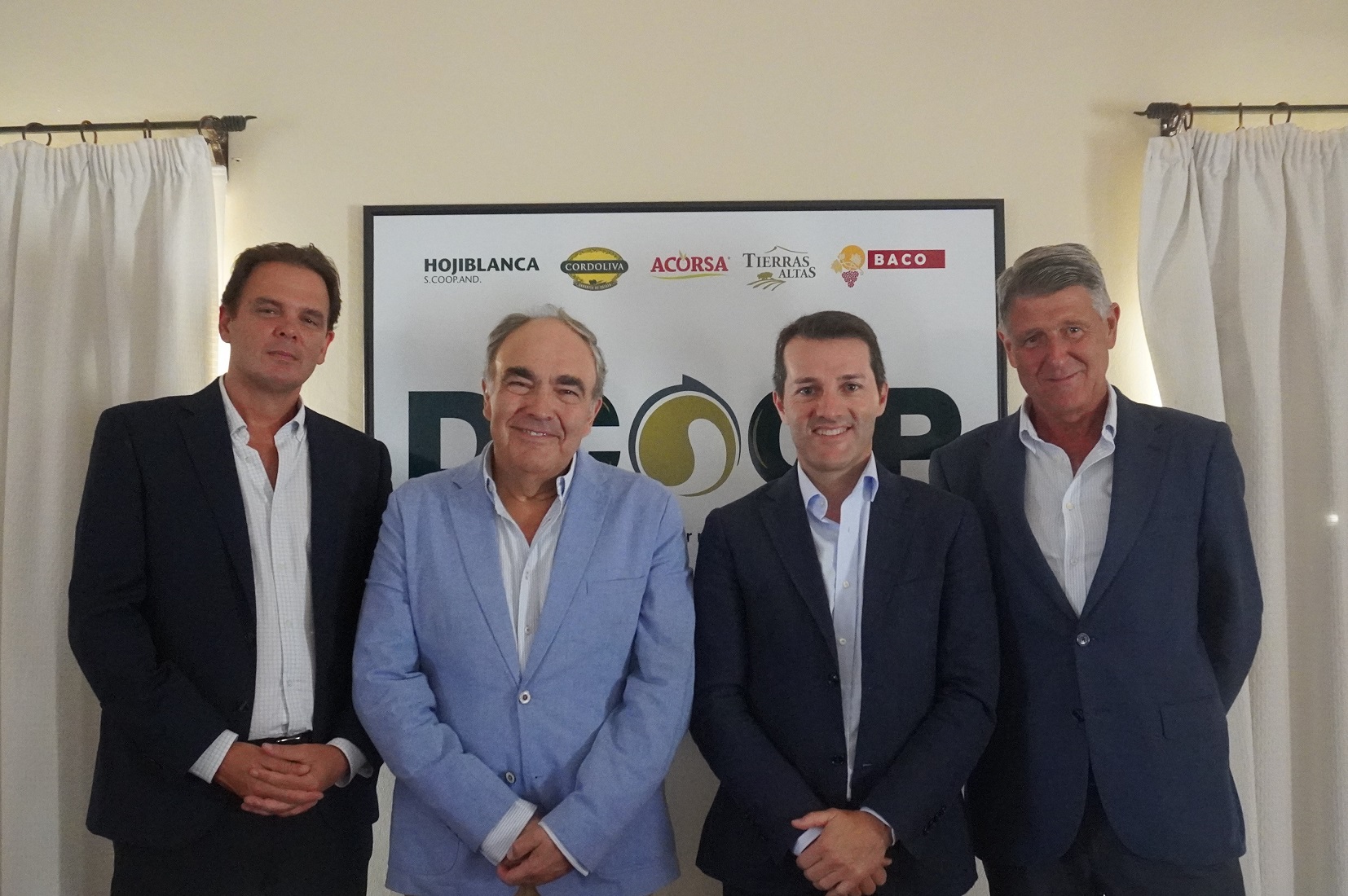Importaco Nuts and Dcoop’s almond division have signed an agreement for the commercialisation of Mediterranean almonds in the distribution, Horeca channel and ingredients businesses at a global level with the aim of becoming the main players in the commercialisation of this product.
The strategic signing took place at Dcoop’s facilities in Antequera (Malaga) with Antonio Luque, President of Dcoop, and Toño Pons, President of Importaco. The aim of the agreement is to market more than 12,000 tonnes of almond kernels by 2028.
Dcoop has around twenty four associated organisations, including Importaco, more than 365 producer members, 10,000 hectares of almond trees and a production in 2023/24 of approximately 8,000 tonnes of almond kernels. The cooperative expects to reach a figure of 20,000 tonnes of almonds by 2027.
Importaco is one of the largest specialists in the distribution of almonds in the retail and industrial markets at European level. In this sense, it has a Technology Centre and various lines of innovation for the development of products for the retail and industrial markets at a European level. Mediterranean almonds have a series of competitive advantages for these markets, such as their proximity, sustainability, nutritional profile and organoleptic characteristics.
Dcoop’s Almond Section will continue to develop its commercial activity in the field of sales of skinned, calibrated and selected almonds in national and export markets, focusing on Europe, China and the Middle East. For its part, Importaco Nuts will be the strategic and exclusive partner of this Section in the
commercialization of value-added products.
Factories specialising in almonds
Within its network of specialised factories, Importaco has a plant in Vall d’Alba, in the province of Castellón, dedicated exclusively to almond processing. This plant has a production volume of 12,000 tonnes per year and is certified in international quality standards such as IFS Food and BRC. In terms of sustainability, the centre has its environmental management system under the ISO 14001 standard, has its own facilities for the supply of renewable energy and a zero waste policy.
For its part, Dcoop, since work began at the Villarrubia plant (Córdoba) in 2018, nearly 20 million euros have been invested. The plant has almond splitting, selection, sizing and packaging machinery, and is certified with the international IFS Food quality standard. Furthermore, the facilities of Dcoop in Villarrubia has a storage capacity of 18,000 tons of almonds in shell, as well as with cold storage capacity for 3,500 tons of almond kernels.
About Dcoop
Dcoop’s almond division is part of Dcoop’s Dried Fruit Section, which also deals with pistachios. Recognised as an OPFH (Fruit and Vegetable Producers’ Organisation), it is active in the processing and marketing of its members’ Mediterranean almond production on the Iberian Peninsula. The Dcoop Group had a turnover of 1,236.9 million euros in 2022 and has cooperatives, mainly in the south of Spain. It is the world’s largest olive oil producer, although it is also involved in other sectors such as wine, livestock (pigs, cattle and goat’s milk), cereals and supplies.
About Importaco
Importaco is a global food company specialising in the production of nuts and mineral water with a turnover of more than 700 million euros and a team of more than 2,300 people. Its Importaco Nuts division is active in the production and packaging of nuts and dried fruit for the distribution, Horeca and ingredients markets. It has 13 production centres in Europe and a sales volume of over 105 million kilos. Importaco’s activity is characterised by its commitment to quality and sustainability. Through its collaboration programmes, it promotes the implementation of practices for the care of the soil, the protection of biodiversity and the sustainable use of water. It is currently developing a pioneering project for the application of regenerative agricultural practices adapted to the cultivation of almond trees and has the only almond plantation in Spain certified under the Farm Sustainable Assessment standard.
